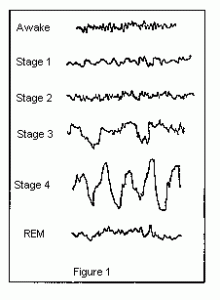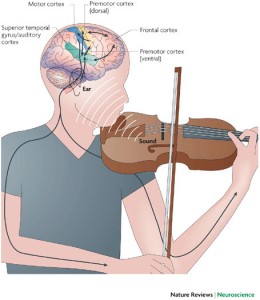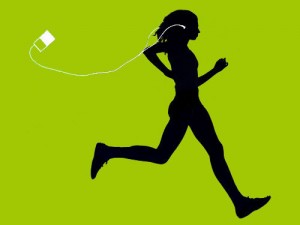Early Musical Training Boosts Motor Skills
 An interesting finding for parents looking to accelerated their kid’s brain development:
An interesting finding for parents looking to accelerated their kid’s brain development:
“A study published last month in the Journal of Neuroscience suggests that musical training before the age of seven has a significant effect on the development of the brain, showing that those who began early had stronger connections between motor regions – the parts of the brain that help you plan and carry out movements.”
The study found that the effect is strongest between the ages of 6-8 and that there appears to be no effect in adults.
Interested to hear from readers that are using music as part of their Next Brain development efforts.
Categories: Child, Cognitive Development, Music and Audio, Training Tags:
Evidence of Learning New Things While Sleeping
 Many of the emails and comments I get have to do with sleep learning. Readers ask if it possible to learn something new while they sleep. So I am always on the lookout for scientific studies that claim we can be taught new concepts or skills while we sleep. Unfortunately, I have not been able to find studies that demonstrate that scientifically, until now.
Many of the emails and comments I get have to do with sleep learning. Readers ask if it possible to learn something new while they sleep. So I am always on the lookout for scientific studies that claim we can be taught new concepts or skills while we sleep. Unfortunately, I have not been able to find studies that demonstrate that scientifically, until now.
Research done at the Weizmann Institute and reported in Nature Neuroscience demonstrates that we are able to learn an association between smells and tones while we sleep. Specially researchers:
“… found that if certain odors are presented after tones during sleep, people will start sniffing when they hear the tones alone – even when no odor is present – both during sleep and, later, when awake. In other words, people can learn new information while they sleep, and this can unconsciously modify their waking behavior.”
So you can learn to sniff in response to a tone while asleep. This does not prove that we can learn more complex and important things while asleep but it does show some new learning is possible. It provides encouragement for personal experimentation with sleep learning. I am interested to hear from readers of the Next Brain Blog that use some form of sleep learning technique. How has it improved your brain function or cognitive performance?
Source of Image: Brain Basics – Understanding Sleep
Categories: Memory and Learning, Music and Audio, Sleep Tags:
10 Years of Music Creates Big Cognitive Reserve
 We have covered the importance of music for improving cognitive performance in several posts on the Next Brain Blog. Some researchers argue that learning to play a musical instrument is one of the best ways to improve and maintain brain function.
We have covered the importance of music for improving cognitive performance in several posts on the Next Brain Blog. Some researchers argue that learning to play a musical instrument is one of the best ways to improve and maintain brain function.
A new study, from Emory University supports this idea but provides some specifics:
“… musicians with at least 10 years of instrumental musical training remained cognitively sharp in advanced age.”
Even if subjects stopped playing at some point in life the positive effects linger as long as they played for at least 10 years. Through a decade of musical practice you build up a type of cognitive reserve that can be used later. As the article reports:
“This is an exciting finding in light of recent evidence suggesting that high educational levels are likely to yield cognitive reserve that may potentially delay the onset of Alzheimer’s symptoms or cognitive decline,…”
Ten years may seem like a large investment but developing a strong and resilient brain is a life-long process. Interested to hear from readers that have experience learning and playing a musical instrument. Are you building a cognitive reserve?
Source of Image: When Brain Plays Music
Categories: Music and Audio, Older Adult, Training Tags:
Strengthen Existing Memories While You Sleep
Learning during sleep is a long sought goal. Exciting new research from Northwestern University reveals that you can but there is a hitch. You can only strengthen existing memories not learn something new.
 They demonstrated the effect for learning to play a new tune. Subjects practiced learning two new tunes on a key board and then took a 90-minute nap. During the nap they were exposed to one tune but not the other. Upon awakening they committed fewer errors playing the tune they heard while sleeping.
They demonstrated the effect for learning to play a new tune. Subjects practiced learning two new tunes on a key board and then took a 90-minute nap. During the nap they were exposed to one tune but not the other. Upon awakening they committed fewer errors playing the tune they heard while sleeping.
The researcher speculate how this might be applied more broadly:
“If you were learning how to speak in a foreign language during the day, for example, and then tried to reactivate those memories during sleep, perhaps you might enhance your learning.”
I am interested to hear from readers that have experimented with learning during sleep. Did you learning any new?
Categories: Memory and Learning, Music and Audio, Training Tags:
Daily Practices for Optimal Cognitive Performance
 Lumosity, a well respected maker of brain training tools and games, recently shared the results of a massive (750,000 person) survey. They looked for specific daily practices that support optimal cognitive performance.
Lumosity, a well respected maker of brain training tools and games, recently shared the results of a massive (750,000 person) survey. They looked for specific daily practices that support optimal cognitive performance.
Here is what they found:
- 7 hours of sleep is much better than 5 or 10 especially when combined with the other practices.
- Exercise is key but your don’t need much. Cognitive performance peaks at about 2-3 workouts per week.
- Read at least 10 minutes everyday.
- Have 1-2 alcoholic drinks per day. Definitely avoid 3 or more.
- Play a musical instrument at least once per week.
Following these practices should improve memory and speed of mental processing.
Rarely do you see such specific advice on duration and quantity. Lumosity is able to get so specific when others are not because they have some 20 million registered users.
I am interested to hear from readers that decide to try this out.
Categories: Cognitive Decline, Diet, Lifestyle, Memory and Learning, Mental Focus, Music and Audio Tags:
Your Brain on a Bird’s Music
 Music created by Humans can have a big impact on brain function and cognitive performance. It can stimulate emotions, trigger recollection and association and even stimulate learning and creativity. But what about Nature’s music, more specifically a singing bird?
Music created by Humans can have a big impact on brain function and cognitive performance. It can stimulate emotions, trigger recollection and association and even stimulate learning and creativity. But what about Nature’s music, more specifically a singing bird?
A recent article, Can Bird Song Boost Your Brain?, describes an interesting ongoing 3-year study to take a scientific look at how bird song impacts our moods, creativity and cognition in general.
The article includes some sample bird songs you can listen to. Try them out. Do any trigger a positive cognitive or emotional reaction?
Many bird song recording are available making it easy to play them as background sound or fold them into a brain training routine. I am interested to hear from readers that use bird song or other natural sounds as part of their Next Brain training program.
Categories: Ancient Ways, Music and Audio Tags:
Can Singing Significantly Improve Brain Function?
 The answer is yes according to the makers of SingFit an App for the iPhone and iPad that is due out in just a couple of weeks. Grounded in well-established principles from music therapy they claim:
The answer is yes according to the makers of SingFit an App for the iPhone and iPad that is due out in just a couple of weeks. Grounded in well-established principles from music therapy they claim:
“Scientific studies have shown that singing in general positively impacts the levels of hormones responsible for regulating mood, blood pressure and social bonding, including serotonin, cortisol and oxytocin. Furthermore, singing has been proven to help increase immune system strength and respiratory function while decreasing stress, pain and agitation. Imaging studies also reveal that singing can promote cross hemisphere brain activity, which can increase mental neuroplasticity and improve cognitive functioning.”
The app is free but they hope to sell you a $13 a month subscription for more content. I’d like to hear from readers that use this app or other forms of music therapy to build brain function and improve cognitive performance.
Categories: Ancient Ways, Memory and Learning, Music and Audio, Problem Solving, Sleep Tags:
Cognitive Training uses Music to Boost Verbal IQ
Music is one of the best ways to charge up your cognitive performance in both the short and long term. What differentiates music from noise or other sounds? It is exactly its ability to authentically move our hearts and extend our minds. Music is brain boosting technology by definition. That’s why in the Next Brain blog we are always on the look out for applications that use music to improve brain function or enhance cognitive performance.
 For example, a new study by The Royal Conservatory of Music in Canada, York University and others showed that students 4-6 years old experience a measurable increase in IQ after just 20 days of music-based cognitive training. The improvement showed up in before and after testing and EEG brain imaging.
For example, a new study by The Royal Conservatory of Music in Canada, York University and others showed that students 4-6 years old experience a measurable increase in IQ after just 20 days of music-based cognitive training. The improvement showed up in before and after testing and EEG brain imaging.
The music-based cognitive training included interactive cartoons that delivered lessons twice each day for one hour. A picture of the cartoon is included in this post. To see more watch a video.
While only one study, the results are significant. An impressive 90% of the 48 students in the study show improvement in verbal intelligence after just 40 hours of training. There was a control group and the differences showed up in an EEG that measure functional brain activity. The effects should be long lasting. For more details check out the press release on the Association of Psychological Science web site.
Interested to hear from readers that use music-based training programs.
Categories: Child, Music and Audio, Software, Training Tags: art
Combine Techniques to Double Brain Boost
 In the Next Brain blog we review techniques that hold good promise for improving brain function and cognitive performance. Many of the techniques involve lifestyle choices, for example how you eat, sleep, interact with others and exercise; others involve major development efforts such as learning to play a musical instrument, second language or how to reason critically; still others are specialized, for example neuro-feedback, brain training, mindfulness and yoga. One concern I often hear is that many techniques produce small or temporary effects. This is true. One way to combat that is to combine them for greater effect.
In the Next Brain blog we review techniques that hold good promise for improving brain function and cognitive performance. Many of the techniques involve lifestyle choices, for example how you eat, sleep, interact with others and exercise; others involve major development efforts such as learning to play a musical instrument, second language or how to reason critically; still others are specialized, for example neuro-feedback, brain training, mindfulness and yoga. One concern I often hear is that many techniques produce small or temporary effects. This is true. One way to combat that is to combine them for greater effect.
For example, researchers at Ohio State University studied the impact of combing aerobic exercise and music, two well-known brain boosters, to find:
“The improvement in verbal fluency test performance after listening to music was more than double that of the non-music condition.”
Listening to music while you workout will significantly improve your score on a standardized cognitive test. Subjects in the study that listened to the music also reported feeling better and a more positive mood.
I am looking for additional research on combination effects. If you have a reference or personal story you would like to share please reply to this blog post.
Categories: Lifestyle, Music and Audio Tags:
Can Pulsed Light-and-Sound Enhance Your Brain?
 The idea behind mind machines is intriguing. They are simple devices that use pulsed sound and light to trick your brainwaves into certain patterns and put you in specific mental states such as relaxation or alertness. The question is do they really work?
The idea behind mind machines is intriguing. They are simple devices that use pulsed sound and light to trick your brainwaves into certain patterns and put you in specific mental states such as relaxation or alertness. The question is do they really work?
There is some scientific evidence that brainwave entrainment can have a therapeutic impact. There are a handful of small companies that manufacture and have sold mind machines for decades. Yet they remain on the fringe.
While I am not endorsing any specific product or company, you can learn more by checking out this video by the folks at Mind Alive. One of their mind machines (pictured to the right) runs about $500.
In the video they talk about how this technology delivers a “made to order mental state”. They also emphasize that given its ability to help manage stress it should be in every home. Perhaps if we had an iPhone or Droid app that turns a smart phone into a mind machine that will happen.
Very interested to hear from readers that use some form of mind machine. How long have you used it? What effects does it produce?
Categories: Mental Focus, Music and Audio, Other, Sleep Tags: Brainwave Entrainment
